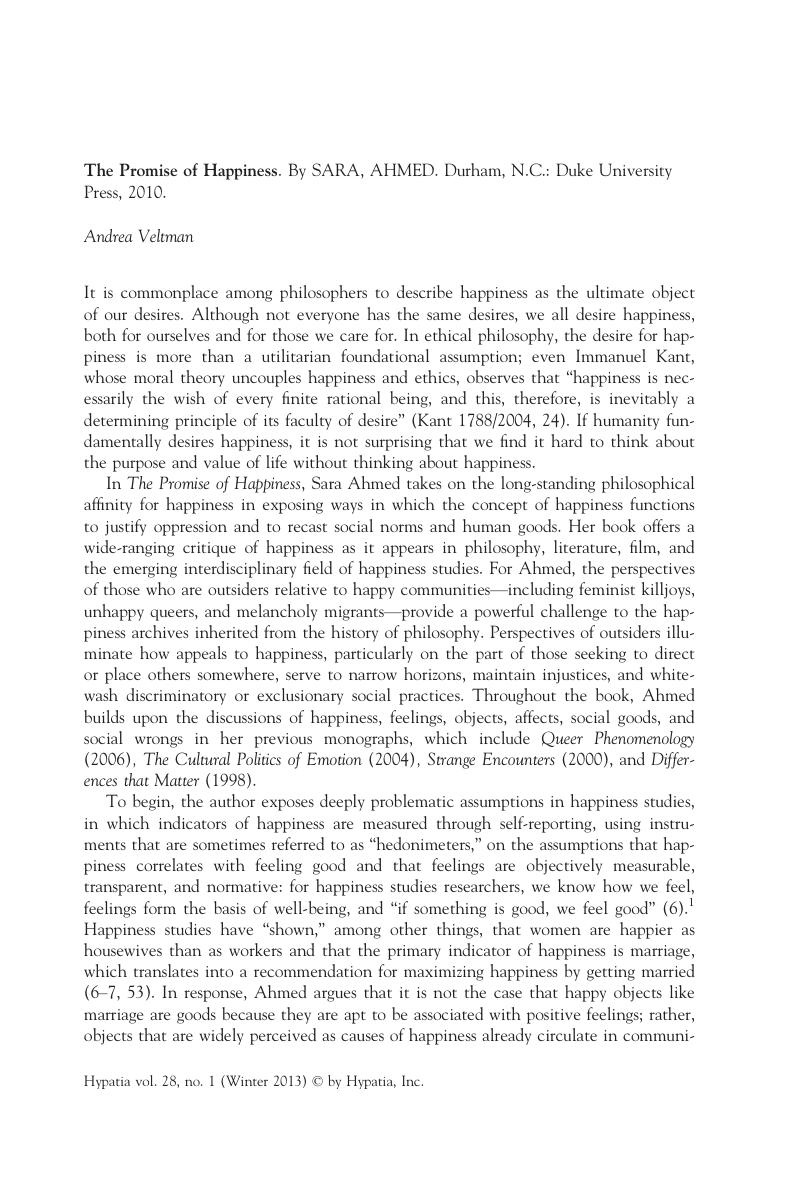No CrossRef data available.
Article contents
The Promise of Happiness. By Sara Ahmed. Durham, N.C.: Duke University Press, 2010.
Published online by Cambridge University Press: 25 March 2020
Abstract
An abstract is not available for this content so a preview has been provided. Please use the Get access link above for information on how to access this content.

- Type
- Invited Book Reviews
- Information
- Copyright
- Copyright © 2013 by Hypatia, Inc.
References
Ahmed, Sara. 1998. Differences that matter: Feminist theory and postmodernism. Cambridge, UK: Cambridge University Press.CrossRefGoogle Scholar
Ahmed, Sara. 2000. Strange encounters: Embodied others in post‐coloniality. London: Routledge.Google Scholar
Ahmed, Sara. 2004. The cultural politics of emotion. Edinburgh: Edinburgh University Press.Google Scholar
Ahmed, Sara. 2006. Queer phenomenology: Orientations, objects, others. Durham, N.C.: Duke University Press.CrossRefGoogle Scholar
Beauvoir, Simone de. 1949/1997. The second sex. Trans. H. Parshley, M.London: Vintage.Google Scholar
Frey, Bruno, and Stutzer, Alois. 2002. Happiness and economics: How the economy and institutions affect human well‐being. Princeton: Princeton University Press.Google Scholar
Kant, Immanuel. 1788/2004. Critique of practical reason. Trans. Abbott, Thomas Kingsmill. New York: Dover Publications.Google Scholar
Nettle, Daniel. 2006. Happiness: The science behind your smile. Oxford: Oxford University Press.Google Scholar
Pitts, Jennifer. 2005. Jeremy Bentham: Legislator of the world? In Utilitarianism and Empire, ed. Schultz, Bart and Varouxakis, Georgios. Lanham, Md.: Lexington Books.Google Scholar
Schultz, Bart, Varouxakis, Georgious, eds. 2005. Utilitarianism and Empire. Lanham, Md.: Lexington Books.Google Scholar
Stokes, Eric. 1959. The English Utilitarians and India. Delhi: Oxford University Press.Google Scholar


